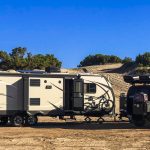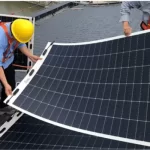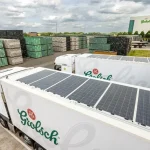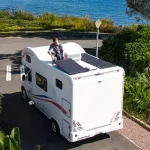How Off Grid Solar System Work in Winter? It’s important to understand how off grid solar system operate in colder temperatures and how you can maximize their performance during this time. Let’s explore the key aspects and considerations to ensure your off grid solar system functions optimally in winter conditions.
How Does Temperature Affect Solar Panels?
1.1 How Do Solar Panels Behave in Winter and Summer?
Solar panels are designed to convert sunlight into electricity, but temperature can influence their performance. In general, solar panels are more efficient at lower temperatures. As the temperature drops, the conductivity of the semiconductor materials in the solar cells improves, allowing for better energy conversion.
1.2 What Happens If Solar Panels Freeze?
Solar panels are built to withstand various weather conditions, including freezing temperatures. They are designed with durable materials and tempered glass to handle snow loads and ice. However, it’s important to note that when solar panels are covered in snow or ice, their ability to generate electricity is significantly reduced. Regular snow removal or allowing natural melting can help restore their performance.
How Do I Prepare My Off Grid Solar System for Winter?
2.1 Adjusting the Angle of the Panels
In regions with heavy snowfall, adjusting the angle of the solar panels to a steeper position can help the snow slide off more easily. This prevents snow accumulation and allows for better sunlight absorption once the snow has cleared.
2.2 Reduce Energy Use
Winter days are shorter, which means less sunlight and fewer hours of solar energy generation. It’s important to conserve energy by being mindful of your power usage. Optimize the use of energy-efficient appliances, turn off unnecessary lights, and avoid excessive energy consumption during peak hours.
2.3 Insulate Batteries
Batteries are crucial components of off grid solar system, and cold temperatures can impact their performance. Insulating the battery bank can help maintain optimal operating temperatures and prevent energy loss due to cold weather.
2.4 Monitor Battery Discharge Levels
Regularly monitor the state of charge of your battery bank during winter. Colder temperatures can affect battery capacity, so it’s essential to avoid over-discharging the batteries, as this can lead to permanent damage. Adjust your energy usage accordingly and consider implementing a battery monitoring system.
2.5 Equalize the Battery Bank
Performing a battery equalization charge periodically can help maintain the overall health and balance of the battery bank. This process helps equalize the charge among the individual battery cells, ensuring they perform optimally and extending their lifespan.
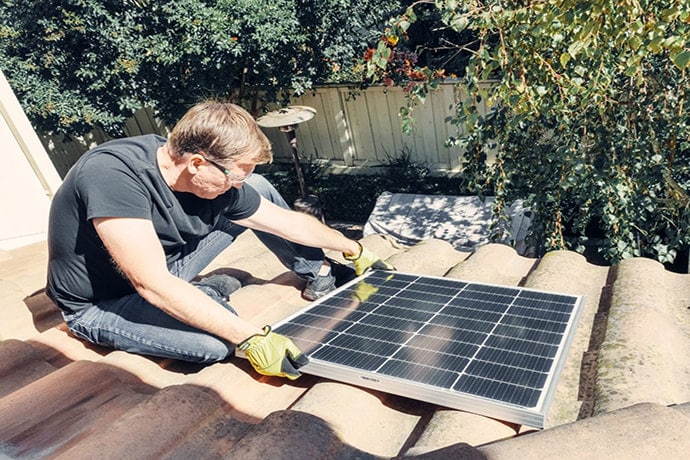
How to Maintain Off Grid Solar Systems in Winter?
3.1 Solar Panels
Regularly inspect and clean your solar panels to remove any snow, ice, or debris that may accumulate. Use a soft brush or squeegee to avoid scratching the surface. Cleaning the panels will maximize their efficiency and ensure optimal energy production.
3.2 Solar Charge Controller
Ensure that your solar charge controller is operating correctly and set up to match the specific requirements of your off grid solar system. The charge controller regulates the flow of electricity from the solar panels to the batteries, preventing overcharging and protecting the batteries from damage.
3.3 Battery Bank
Monitor the battery bank regularly and check the electrolyte levels if you have flooded lead-acid batteries. If necessary, add distilled water to maintain proper levels. Follow the manufacturer’s recommendations for battery maintenance, such as cleaning terminals and connections, to ensure reliable performance.
3.4 Inverter
Inspect the inverter for any signs of damage or malfunction. Clean the ventilation openings and ensure proper airflow to prevent overheating. Check the inverter’s display or monitoring system for any error messages or warnings and address them promptly.
3.5 Solar Generator
If you have a solar generator as part of your off grid solar system, make sure it is well-maintained during winter. Keep the generator clean and free from snow or ice buildup. Check the fuel levels and perform regular maintenance tasks as recommended by the manufacturer. This includes oil changes, filter replacements, and general system inspections.
Now It’s Time to Use Solar Energy
Once you have taken the necessary steps to prepare and maintain your off grid solar system for winter, it’s time to utilize the solar energy effectively. Here are some tips:
Energy Conservation
During winter, daylight hours are shorter, so it’s essential to be mindful of your energy consumption. Prioritize energy-efficient practices, such as using LED lights, insulating your home, and adjusting thermostat settings to optimize heating and cooling.
Backup Power
In the event of prolonged cloudy days or reduced energy production, it’s advisable to have a backup power source. This could be a generator powered by alternative fuels like propane or a battery bank with sufficient capacity to provide backup power when needed.
Load Management
Distribute your energy usage throughout the day to avoid placing excessive demand on your off grid solar system during peak hours. Consider using timers or programmable devices to schedule power-intensive tasks when solar energy production is at its peak.
Monitor Energy Usage
Keep track of your energy consumption using a monitoring system. This will help you identify any abnormal patterns or detect potential issues with your off grid solar system. Monitoring also allows you to make informed decisions about energy usage and adjust accordingly.
Maintenance Checks
Regularly inspect and maintain your off grid solar system throughout the winter season. Check for any damage, clean the panels, and ensure all connections are secure. Regular maintenance will help maximize the efficiency and longevity of your system.
Off grid solar power system can function effectively in winter with proper preparation and maintenance. By understanding how temperature affects solar panels, preparing your system for winter conditions, and implementing regular maintenance practices, you can continue to harness the power of the sun even during the colder months. Enjoy the benefits of clean and sustainable energy throughout the year while reducing your reliance on traditional grid power.
Frequently Asked Questions about Off Grid Solar System in Winter
Can off grid solar panels generate power during snowy or cloudy days?
Solar panels can still generate power during snowy or cloudy days, although the energy production may be reduced. Snow should be cleared from the panels to optimize performance, and the system’s battery bank can provide power during periods of low energy production.
Are off grid solar system suitable for extremely cold climates?
Off-grid solar systems can be used in cold climates, but it’s important to choose equipment that is designed to withstand the specific weather conditions. Some components, such as batteries and charge controllers, may require additional insulation or specialized options for cold environments.
How often should I check and maintain my off grid solar system in winter?
Regular maintenance checks are recommended throughout the winter season. This can include visual inspections, cleaning panels as needed, monitoring battery levels, and addressing any performance issues promptly. It’s advisable to follow the manufacturer’s recommendations for maintenance intervals.
Can I install an off grid solar system myself?
While it’s possible to install an off grid solar system yourself, it’s recommended to seek professional assistance, especially if you’re not experienced with solar installations. Professional installers can ensure that the system is correctly sized, properly wired, and meets all safety requirements.




